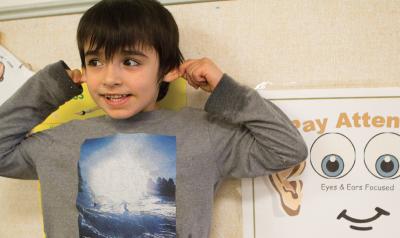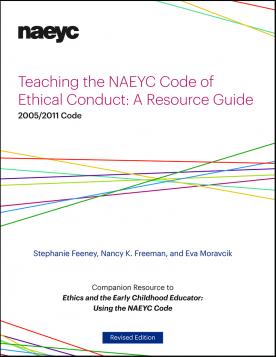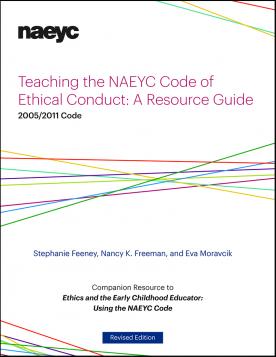Standing Together Against Suspension & Expulsion in Early Childhood: Resources

You are here
Expulsion in early childhood education is not an intervention. Over a decade of research and data tell us that the policies and practices of suspension and expulsion in early childhood, which disproportionately affect children of color, are causing harm to children and families. Over 30 national organizations came together to create a joint statement that amplifies and elevates the issue. It's time to heed the calls to prevent, limit and eliminate suspensions and expulsions in early childhood education.
But how? Keep reading to find resources for teachers, administrators, policymakers, states and districts that offer data, toolkits, models and templates to help change our policies and practices (or download the PDF). Eliminating suspension and expulsion across all states and settings in early childhood education is our collective and systemic responsibility. What will your part be?
New Research: Implicit bias and early childhood educators
We all have implicit biases, yet we don’t often know what to do with them - how to examine, respond to and change them. As a longtime leader in the anti-bias field, NAEYC is committed to bringing new research and resources to you, in order to shine a light on how we can, collectively and individually, reduce our biases and improve our policies and practices to better serve young children and their families. That is why we welcome new research from Dr. Walter Gilliam and a team at the Yale Child Study Center that explores the implicit biases of early childhood educators and the impact those biases may have on their expectations of children’s behavior and recommendations related to suspension and expulsion.
We are also proud of early childhood educators’ role in collecting the data for the survey. We know that, when fully informed about what this research was addressing, all but one educator chose to remain in the study. The truth is that nearly 90% of American voters say early childhood educators are important members of their communities, on par with firefighters and nurses. Yet it’s not often that early childhood educators have the opportunity to display true courage on a national stage, as firefighters and nurses so often do. Willingly holding up a mirror to examine one’s own biases, however, takes courage; courage that is displayed by few members of any profession. We are proud to stand as an example for other individuals and professions in tackling head-on the issues that prevent us from fulfilling our shared mission and vision to ensure that all children have equitable access to high-quality, developmentally-appropriate early childhood education.
- Read about the study from Dr. Gilliam and the Yale Child Study Center
- Read the full statement on the study from NAEYC
From the media:
- Bias Isn't Just a Police Problem, It's a Preschool Problem, via NPR
- Yale Study Suggests Racial Bias Among Preschool Teachers, via the Washington Post
Resources for Teachers
More Resources
Rethinking Discipline
The Department of Education summarizes the work of the Rethinking Discipline initiative, and includes links to resources for educators, school leaders and administrators. View PDF »
Freeing Schools From the School to Prison Pipeline
This downloadable toolkit by the National Education Association provides positive strategies from educators for keeping students in the classroom. View PDF »
Preventing Expulsion from Preschool and Childcare
This webpage from Zero to Three includes videos and resources focused on expulsion for educators, parents, and policymakers. View PDF »
NAEYC's Code of Ethical Content as a Guide
Research and Policy
- Policy Statement on Expulsion and Suspension Policies in Early Childhood Settings
- Reducing Suspension and Expulsion Practices in Early Childhood Settings
The Administration for Children and Families
This website hosts several resources, including a webinar series, policy statements, and connections to resource and data.
- View the webinar series
- View resources for states, early childhood programs, and families and caregivers
Early Childhood Suspension and Expulsion
This document by the Center on Enhanced Early Learning Outcomes identifies selected research studies and federal and state policy resources and recommendations. View PDF »
Timeline of Research, Commentary, and Policy of Preschool Expulsions and Suspensions
This timeline from the Edward Zigler Center in Child Development and Social Policy at Yale University details significant events and documents related to the causes and consequences of early childhood suspensions and expulsions, as well as effective methods for prevention at the federal, state, and local levels.
Additional Resources from Other Organizations
- Positive Alternatives to Suspending and Expelling Students in Early Childhood Education - American Federation of Teachers and Albert Shanker Institute's recorded roundtable event features a group of experts exploring how to ensure that early childhood educational settings schools have appropriate, nurturing and responsive policies in place.
- Point of Entry: The Preschool to Prison Pipeline - This joint report by the Center for American Progress and the National Black Child Development Institute highlights the trends around preschool discipline as it is disproportionately applied to young Black children, and it offers recommendations. View PDF »
- Being Black is Not a Risk Factor: Statistics and Strengths-Based Solutions - With articles in the national report, as well as those from the states of Illinois, Wisconsin, Pennsylvania and Michigan, practitioners, experts, and researchers provide critical perspectives on approaches to nurturing and supporting Black children and families for the National Black Child Development Institute. View PDF »
- Ending the Schoolhouse to Jailhouse Track -This program by the Advancement Project encompasses early childhood education as well as students in K-12, provides research and case studies to help parents and teachers advocate for education equality for all children.
- FirstSchool: Transforming PreK-3rd Grad for African American, Latino and Low-Income Children -This book provides research and practice that defines FirstSchool as a critical approach to closing the achievement and opportunity gaps, with a focus on collaborative professional learning and developmentally appropriate teaching strategies that concentrate on the needs of minority and low-income children.
- Standard 2.2.08: Preventing Expulsions, Suspensions and Other Limitations in Service - This chapter is part of the AAP's work of the National Center on Early Childhood Health and Wellness, Caring for Our Children, 3rd Edition. The child care website of the American Academy of Pediatrics (www.healthychildcare.org) also has links to find Child Care Health Consultants.
- Addressing Disparities in Discipline for African American Girls -This brief from the National Women's Law Center and the NAACP Legal Defense and Education Fund, Inc. provides a data snapshot and policy recommendations related to supporting African American girls in grades PreK-12.
- Supporting Social Emotional Competence in Infants and Young Children -The Pyramid Model Consortium was created to continue the Pyramid Model work on social emotional competence after funding for the Technical Assistance Center on Social Emotional Intervention for Young Children (TACSEI) and the Center on the Social and Emotional Foundations for Early Learning (CSEFEL) ended, though resources are still available through those websites as well.







